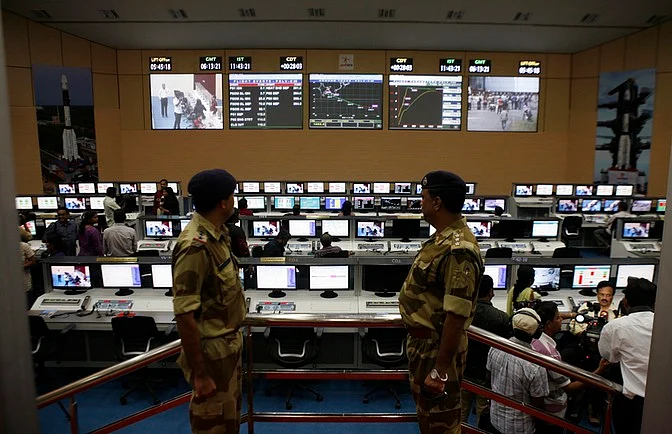The UPA government’s decision to scrap the deal with Devas Multimedia has come back to haunt us.
The government of India will have to shell out Rs 4,432 crore in all probability for annulling the contract between Antrix, the Indian Space Research Organisation’s (ISRO) commercial arm, and Devas multimedia, an Indian technology company with global investors.
A tribunal setup to arbitrate the dispute between Antrix and Devas Multimedia by the International Chamber of Commerce (ICC) ruled in favour of the corporation and found India’s space agency to be in breach of contract.
ISRO Chairman AS Kiran Kumar, when asked for his comments, said, “Our legal team is looking into it.”
So what was the Antrix-Devas deal? Was it really a case of corruption, or did the UPA government, already under siege from the CWG and 2G scam give in to pressure from the media and opposition when it annulled the deal?
The Antrix-Devas Deal – A Murky Affair?
Antrix, ISRO’s marketing arm, was set up in 1992 to look into the commercialisation of space products, as well as provide consultancy services and transfer technology.
Devas Multimedia, headquartered in Bangalore, was set up by former ISRO scientists and Deutsche Telekom AG and US investment firms Columbia Capital LLC and Telcom Ventures LLC are investors in Devas.
In 2010, the commercial space industry was worth a whopping USD 276 billion, an industry India hopes to make its mark on.
The agreement with Devas would have earned ISRO a total of USD 300 million over 12 years. Under the deal signed in 2005, Antrix was to provide 70 MHz of the scarce S-Band wavelength to Devas for its digital multimedia services by leasing 90 per cent of the transponders in ISRO’s GSAT-6 and GSAT-6A satellites. Devas, in turn, was to pay Antrix a total of USD 300 million over 12 years.
The satellites would have helped Devas deliver internet and broadband services to remote areas.
So where is the problem? Well, ISRO did not inform the Cabinet, led by Manmohan Singh at the time, of the decision to build to satellites for Devas. There was also no auction process, leading to the belief that the satellites were leased at very low prices.
There was also a hint of conflict of interest, given that Devas Multimedia also had former ISRO scientists on its board. Then there was the massive figure of a Rs 2,000,000 crore ‘presumptive loss’ put forth by a CAG audit.
Did the UPA Government Act too Hastily Under Pressure?
The UPA government annulled the contract between Antrix and Devas in August 2011. At the time, the government was already reeling from outrage in the public and media over the 2G scam, the Commonwealth Games scam, and the Adarsh Housing Society scam.
The alleged corruption and impropriety in the Antrix-Devas deal just added fuel to an already raging fire. But was the government right in annulling the deal?
The venture with Devas would have brought in new technology – always a high-risk proposition. As far as the issue of not going through a tender or auction process, Antrix had leased satellites in the past without tendering.
Even the ‘presumptive loss’ associated with the deal has been rubbished.
CAG Vinod Rai, the man who insisted on the1.76 lakh crore figure in the 2G scam, despite objections from the Cabinet, didn’t back the presumptive loss figure for the Antrix-Devas deal.
This was an audit being undertaken by the Bangalore branch office of the principal director of audit. I happened to be travelling to Bangalore a few days later and discussed the audit query with the concerned officer. The senior audit officer who conducted the audit meticulously explained the process to me and being questioned on the ostensible loss figures plainly told me that he was well within his powers to do so! It is a different story that on closer examination of that audit report in the head quarters we felt that the loss figure had no basis and hence dropped it.
— Vinod Rai, Ex CAG in his book Not Just an Accountant
From a Presumptive Loss to a Very Real Penalty
The UPA government’s decision to scrap the deal with Devas Multimedia has come at a heavy cost. The media was attacking the government, and the Manmohan Singh cabinet, already mired in controversy, gave in.
That decision has led to the scenario which India finds itself in today.
The CAG himself has retracted the 2 lakh crore figure, the exchequer is staring at a USD 672 million bill, and the credibility of the commercial arm of India’s space agency stands tainted.
